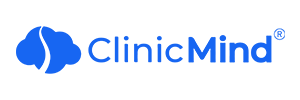
Top 15 Carepatron Alternatives
Compare Features
Feature List |  Carepatron | TherapyNotes EHR | SimplePractice | Tebra | TheraNest by Ensora Health |
|---|---|---|---|---|---|
Appointment Management/Scheduling | |||||
e-Prescriptions | |||||
Lab Integration | |||||
Patient Portal | |||||
Mobile App | |||||
Telemedicine | |||||
Billing And Invoicing | |||||
Claims Management | |||||
Customizable Forms/Reports | |||||
Patient Demographics |
Make decisions with real reviews from real users
The demand for integrated mental health and medical practice solutions continues to rise. Healthcare providers are increasingly turning towards electronic health record (EHR) platforms to streamline workflows, ensure compliance, and enhance patient engagement. Carepatron has positioned itself as an all-in-one solution for solo practitioners and small to medium-sized mental health practices. It offers features like appointment scheduling, note-taking, billing, and secure telehealth.
While Carepatron is widely appreciated for its intuitive interface and affordability, some practices find it lacking when it comes to advanced features in the free version, built-in messaging system, and electronic insurance billing. Hence, prompting practitioners to look for alternative solutions.
In this guide we have highlighted the top 10 alternatives to Carepatron. We have covered the essential features, pros, cons, and pricing options for each alternative to make the selection process seamless for you.
Let’s dive in!
Our Best Carepatron Alternatives For Your Healthcare Facility
Software Name | Unique Advantage | Notable Features |
TherapyNotes EHR |
|
|
SimplePractice |
|
|
Tebra (Kareo + PatientPop) |
|
|
Ensora Mental Health (formerly TheraNest) |
|
|
Jane App |
|
|
RXNT |
|
|
CareCloud EHR |
|
|
Cliniko |
|
|
ClinicMind |
|
|
Power Diary |
|
|
1. TherapyNotes EHR

TherapyNotes is one of the leading EHR software tailored specifically for behavioral health professionals. It offers a structured, clinical-grade documentation system that supports therapy-specific workflows. The platform includes note templates for a wide variety of treatment types, calendar and scheduling tools, and secure telehealth functionality.
TherapyNotes offers built-in insurance claims management, a feature that Carepatron lacks. For clinics handling multiple insurance providers or billing codes, this offers a much smoother, error-free billing experience.
Key Features
- TherapyFuel AI
- HIPAA Compliant Electronic Medical Records (EMR)
- Electronic Insurance Claims Processing
- Automated Appointment Reminders
What Are The Pros And Cons Of TherapyNotes?
Pros | Cons |
|
|
How Much Does TherapyNotes Cost?
It offers the following plans:
- Solo: $59/month/user
- Group: $69/month for first clinician plus $40/month/additional clinician
- Enterprise (30+ users): $69/month for first clinician plus $40/month/additional clinician
Disclaimer: The pricing is subject to change.
2. SimplePractice

SimplePractice is a well-known practice management solution that offers services to practitioners across mental health, wellness, and allied health professions. Its robust suite includes paperless intake, calendar syncing, and robust data sharing capabilities. Moreover, it offers a comprehensive digital front door for client interactions, ideal for therapists who prioritize streamlined communication.
While Carepatron provides basic telehealth and messaging features, SimplePractice offers a far more advanced telehealth experience with features like group sessions, screen sharing, and integrated notetaking during calls. Hence, making it more suitable for therapists who rely heavily on virtual care.
Key Features
- Telehealth Platforms
- Credit Card Processing
- Claims Tracking
- Measurement-Based Care
What Are The Pros And Cons Of Simple Practice?
Pros | Cons |
|
|
How Much Does Simple Practice Cost?
The vendor provides three pricing plans:
- Starter: $49/month
- Essential: $79/month
- Plus: $99/month
Disclaimer: The pricing is subject to change.
3. Tebra (Formerly Kareo + PatientPop)

Tebra is a powerful cloud-based platform that came into being from the merger of Kareo and PatientPop. It targets small to mid-sized healthcare practices looking for a more comprehensive solution for both clinical and front-office operations. It is known for its automated patient acquisition and engagement system, which leverages digital marketing tools to foster practices growth.
Where Carepatron emphasizes simplicity and practice management for small teams, Tebra excels in revenue cycle management and automated billing workflows. Its tools include automated eligibility checks, claim scrubbing, and analytics-driven financial reporting. As a result, it can be a great fit for clinics needing a more scalable billing infrastructure.
Key Features
- Two-Way Text Communication
- Practice Growth Tools
- Electronic Labs
- Insurance Eligibility Checks
What Are The Pros And Cons Of Tebra?
Pros | Cons |
|
|
How Much Does Tebra Cost?
It offers personalized pricing plans as per the specific requirements of your practice.
4. Ensora Mental Health (Formerly TheraNest)

Ensora Mental Health, previously known as TheraNest, is a specialized mental health EHR designed for solo therapists, group practices, and larger behavioral health organizations. It offers scheduling, documentation, billing, and client communication tools in a unified, HIPAA-compliant platform. It aims to improve both practitioner workflow and client engagement for its users.
One major edge Ensora has over Carepatron is its scalability for larger practices and organizations. The features like staff permissions, user role controls, and advanced group billing tools support complex multi-provider operations more efficiently than Carepatron.
Key Features
- Smart Scheduling
- AI-Powered Note Generation
- Billing Automation
- Drug Interaction Checks
What Are The Pros And Cons Of Ensora Mental Health?
Pros | Cons |
|
|
How Much Does Ensora Mental Health Cost?
It offers three pricing plans, that include:
- Essentials: $29/therapist/month
- Advanced: $59/therapist/month
- Premier: $89/therapist/month
Disclaimer: The pricing is subject to change.
5. Jane App

Jane App is a cloud-based practice management solution designed to support operational requirements of healthcare providers. It focuses on simplifying appointment booking, charting, billing, and client communications, all while providing a modern user interface. Additionally, its customizable chart templates make documentation simple, allowing professionals to adapt charting to their personal style or specialty.
Unlike Carepatron, which primarily focuses on mental health practices, Jane supports a broader range of disciplines including physiotherapy, massage therapy, and chiropractic care. Subsequently, providing a single system with differentiated workflows and billing structures across various care types.
Key Features
- SOAP Notes
- Payment Processing
- Reporting Tools
- Healthcare Website Builder
What Are The Pros And Cons Of Jane App?
Pros | Cons |
|
|
How Much Does Jane App Cost?
The vendor offers three pricing options:
- Balance: CAD $54/month
- Practice: CAD $79/month
- Thrive: CAD $99/month
Disclaimer: The pricing is subject to change.
6. RXNT

RXNT is a full-suite healthcare management software that offers features such as clinical notes, patient scheduling, billing, and reporting capabilities. Moreover, it supports a wide array of medical specialties, with compliance features that align with Medicare, Medicaid, and private payers. The solution also provides a configurable billing dashboard, which is highly beneficial for practices managing complex financial workflows.
While Carepatron lacks an advanced e-prescribing solution, RXNT provides a comprehensive, certified eRx system. These features include electronic prescribing of controlled substances (EPCS), drug interaction alerts, and automatic refill management.
Key Features
- Patient Portal
- EPCS
- Patient Immunization Record Sharing
- Pharmacy Management
What Are The Pros And Cons Of RXNT?
Pros | Cons |
|
|
How Much Does RXNT Cost?
The vendor offers the following bundles at custom rates:
- FS Bundle
- PM Bundle
- EHR Bundle
- ERX
7. CareCloud EHR

CareCloud EHR is a scalable, cloud-based medical care management system built for mid-size to large practices across various medical specialties. It provides a powerful combination of clinical, financial, and administrative tools within its ecosystem. It helps the practices by providing tools for real-time clinical decision support and AI-powered dashboards for patient care tracking and operational analytics.
CareCloud offers advanced analytics for revenue and clinical performance tracking, something Carepatron lacks in depth. These analytics help administrators and physicians monitor KPIs and make data-driven improvements to patient care and operational efficiency.
Key Features
- AI Powered Virtual Support Assistant
- Patient Management
- Real Time Patient Monitoring
- Financial Performance Tracking
What Are The Pros And Cons Of CareCloud EHR?
Pros | Cons |
|
|
How Much Does CareCloud EHR Cost?
It offers flexible pricing plans as per practice needs with basic plans starting at $499.
Disclaimer: The pricing has been sourced from third-party websites and is subject to change.
8. Cliniko

Cliniko is an extensive practice management solution designed for allied health and wellness professionals, supporting both solo practitioners and growing clinics The platform supports scheduling, clinical notes, billing, and telehealth within a GDPR-compliant environment. Additionally, its automated appointment reminders help reduce no-shows, freeing up staff time and improving operational efficiency.
While Carepatron offers general security compliance, Cliniko provides more robust privacy and encryption protocols, including hosting all data on secure, region-specific servers and offering detailed audit logs. These features cater especially well to practices operating in countries with strict data protection laws.
Key Features
- Customizable Treatment Notes
- Invoice Management
- Marketing Analytics
- Multiple Location Management
What Are The Pros And Cons Of Cliniko?
Pros | Cons |
|
|
How Much Does Cliniko Cost?
The vendor offers the following pricing structure:
- 1 Practitioner: $45/month
- 2 to 5 Practitioners: $95/month
- 6 to 8 Practitioners: $145/month
- 9 to 12 Practitioners: $195/month
- 13 to 25 Practitioners: $295/month
- 26 to 200 Practitioners: $395/month
Disclaimer: The pricing is subject to change.
10. ClinicMind

ClinicMind is an all-in-one EHR software tailored for chiropractic and multidisciplinary practices. It blends documentation, patient communication, and compliance features which are highly suitable for revenue-focused clinics. One of its standout offerings is its optional outsourced billing services, where providers can delegate claims processing and collections to a dedicated team.
Unlike Carepatron, which is centered on small-practice usability, ClinicMind shines in its revenue optimization features, such as financial performance dashboards and automated accounts receivable alerts. These tools allow clinics to identify payment delays, analyze payer behavior, and act quickly on outstanding claims.
Key Features
- Pre Care Tools
- Patient Retention
- Business Intelligence Platform
- Post Visit Follow Up Automation
What Are The Pros And Cons Of ClinicMind?
Pros | Cons |
|
|
How Much Does ClinicMind Cost?
It provides the following pricing options:
- Cash: $297/month for unlimited visits
- Insurance Full-Service: $97/month for up to 400 visits/month and $327/month for unlimited visits
- Insurance Self-Service: $97/month for up to 400 visits/month and $327/month for unlimited visits
Disclaimer: The pricing is subject to change.
10. Power Diary

Power Diary is a versatile healthcare management tool designed for health professionals across physiotherapy, psychology, counseling, and other disciplines. It aims to streamline admin work for small to mid-sized clinics, offering features like appointment scheduling, notes, SMS reminders, and telehealth. Moreover, its multi-language interface allows users to switch languages and date formats along with time zone aware scheduling to deal clients across different regions.
Power Diary offers more localized support and customization compared to Carepatron, especially for clinics operating in different countries. These includes localized documentation templates aids in adhering to region-specific tax rules, features missing in U.S.-centric Carepatron.
Key Features
- Appointment Alerts
- Document Storage
- Diagnosis Codes (Pre-Set ICD 10 Codes)
- Patient Progress Notes
What Are The Pros And Cons Of Power Diary?
Pros | Cons |
|
|
How Much Does Power Diary Cost?
It offers two plans for solo practices and one plan for group practices:
Solo Practices
- Starter Plan: $19/month (1000 appointment limit)
- Growth Plan: $49/month (unlimited appointments)
Group Practices:
- Growth Plan: $49/month for the first practitioner plus $19/month/additional practitioner
Disclaimer: The pricing is subject to change.
How We Choose Our Carepatron Alternatives?

To curate this list of the top Carepatron alternatives, we used a comprehensive evaluation methodology focused on quality, reliability, and user relevance. Each software was selected based on the following criteria:
- Specialty Alignment: We listed the tools that also cater to the mental health, behavioral health, or multidisciplinary medical practices
- Practice Size Flexibility: Platform with supporting solo practitioners, mid-sized clinics, and scalable group practices were prioritized
- Security And Compliance: Software that help in adhering to HIPAA-compliance and supports secure data storage and transfer were selected
- Ease Of Use: Preference for platforms that are user-friendly, mobile-accessible, and require minimal training
Selecting The Perfect Carepatron Alternative
Finding the ideal alternative to Carepatron depends on your practice size, clinical specialty, and operational needs. Whether you're seeking advanced documentation tools, integrated e-prescribing, multi-specialty support, or stronger revenue cycle management, the alternatives listed here provide powerful, targeted solutions. Each of these platforms has been carefully selected based on functionality, user trust, and practice-specific advantages.
Ready to upgrade your clinical operations? Contact us now to further explore these Carepatron alternatives today and choose the perfect fit for your practice’s future!









